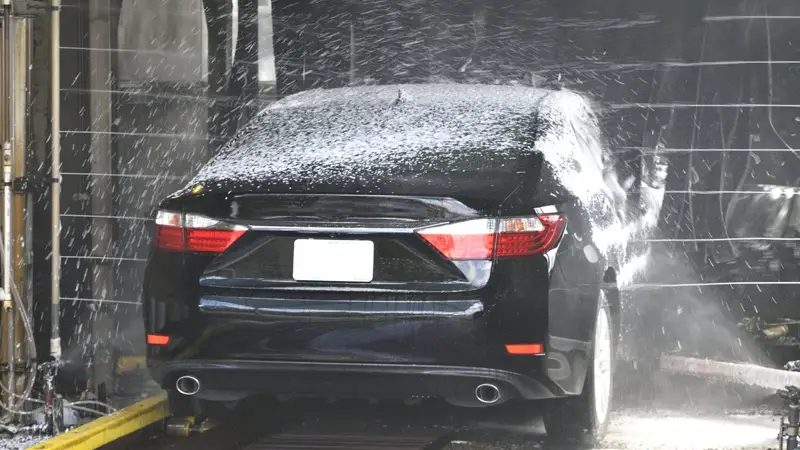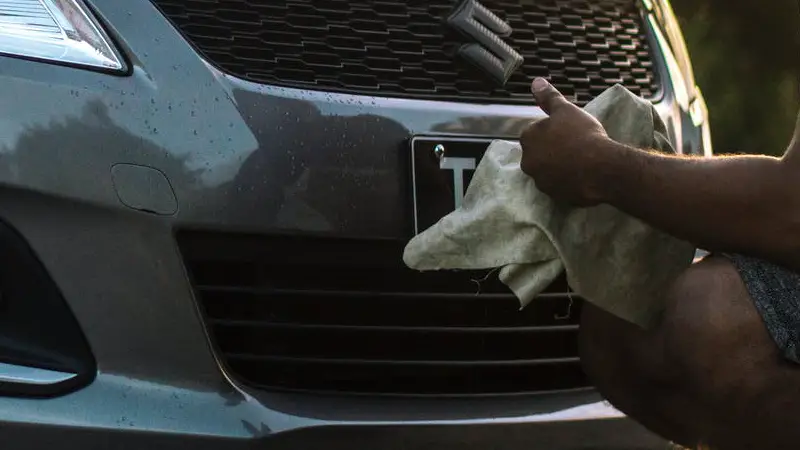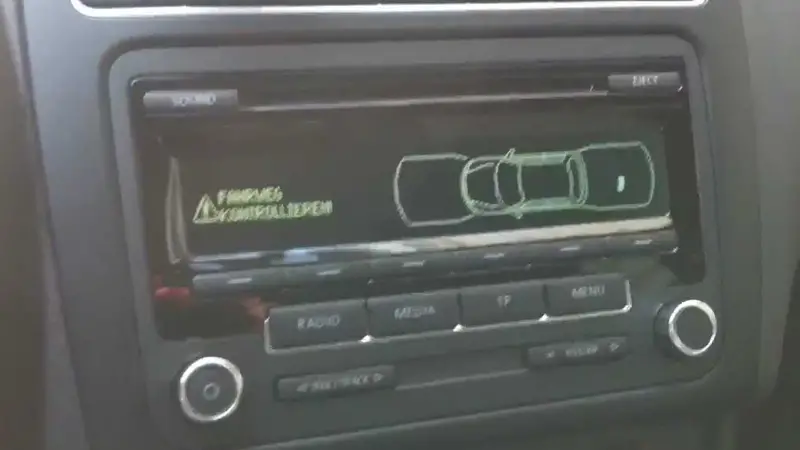When you back into a driveway or parking space, some aids in your car help you know how far you should go. Parking sensors are aids that stop you from bumping into objects and people you cannot otherwise see as you drive. How do you clean your parking sensors?
You can clean your parking sensors when you wash the car or separately. Clean them gently and thoroughly to avoid damaging any features and altering their functionality. They are relatively easy to clean, and you should clean them often.
This article looks at the necessity of cleaning your sensors and how to clean your parking sensors. I also discuss why parking sensors malfunction and how to check the parking sensors for malfunction.
Do You Need to Clean Your Sensors?

Many advanced driver-assist and safety features make driving more convenient and less dangerous. These features also rely on sensors—radars, cameras, and other equipment—to work correctly.
Since the sensors exist all around the car, the same snow, ice, and grime that dirty your car’s windows and tires can cover them, making them inoperable. Therefore, you must clean your sensors, especially your parking sensors
Sometimes, a sensor might fail not because of wiring issues, but because it is dirty. If you can locate and easily access it, you can clean it to restore its function.
You don’t have to keep your sensors immaculate, as most of them are ultrasonic, but you should still maintain a level of cleanliness to ensure that they work as they should. Keep them clear of dirt, snow, heavy soiling, mud, etc.
A few vehicles, including General Motors and Ford models, have devices to wash some sensors—front view and rearview cameras for 360-degree views.
These automatic cleaning devices are like the dedicated wipers and sprayers that keep luxury headlights clean. Regardless, there are no automatic cleaners for the areas with your parking sensors, so it is up to you to do the necessary cleaning.
How to Clean Your Parking Sensors?
Cleaning your parking sensors is a straightforward task, and all you need is warm water, car shampoo or soap, and a soft microfiber cloth. When you have all three ready, follow these steps:
- Fill a bowl or bucket with warm water and the suggested amount of car shampoo.
- Immerse the microfiber cloth in the water solution and rinse.
- Remove any extra dirt on the cloth before applying it to the sensor.
- Wipe the dirt off the sensors gently with the microfiber cloth—use the tip of your finger in a circular motion to cover all areas.
- You may also want to remove the sensors to clean their back with a cloth because debris and oil can build up behind the sensors.
If you clean the sensors when washing the car, do not aim high-pressure water jets directly at them. Also, don’t use sharp objects, rough, hard, or abrasive cleaning materials to wipe the sensors because they can damage them.
After taking the sensors out to clean, place them back in carefully and turn on your car to ensure that they are back to normal functioning.
Do Parking Sensors Work When Dirty?

Whether your sensors work when dirty will depend on the model and design of your car. Some vehicles will give you a warning sign to clean the sensors when they are dirty, whereas others will malfunction.
Inaccurate readings and responses will pop up, and the sensor might beep even when there is no object in your path. Your parking sensors might mistake dirt and debris for a close object and go off. So, clean your sensors to maintain their performance and accuracy
If you get a warning sign on the dashboard, it will disappear after cleaning the sensor. If it doesn’t go away, something else might be wrong with the sensor.
Parking Sensor Malfunctions
Many factors can contribute to the malfunctioning of a parking sensor, and some of them include:
- A failing electronic component of the sensor.
- Moisture entering the sensor through cracks or contact corrosion.
- A manufacturing defect of the sensor: an inferior quality or a fake aftermarket product.
- Damage to the wiring because of chemicals and dirt (usually the front sensors).
- Mechanical damage to the sensor because of impact—in an accident.
Short-circuited wires, especially in rainy weather, will cause a display message to appear on the dashboard.
How To Check Parking Sensors

Two types of parking sensors are electromagnetic sensors and ultrasonic sensors. You can check ultrasonic sensors in the following ways:
- Tactile check—a combination of visual and tactile inspection
- Find a partner to work with you as you inspect.
- Turn on your engine and put the car in reverse or first gear (Drive mode on automatic cars).
- When the sensor is activated and operational, it emits about five to 10 clicks (barely discernible) per second when an object is approaching it directly.
- If you put your finger on the sensor, its surface should vibrate slightly.
- Move your finger a little over it for a better feeling of vibration.
In the same way, check all sensors to rule them out as the problem. If they emit no response, the problem is most likely with the wiring or the parking sensor module.
- Smartphone check
- You can use a voice recorder on a smartphone to diagnose parking sensors with weak vibration or that emit no sound.
- It requires an application that allows you to create a diagram of the sound you record.
- Activate the app, bring the mic to the parking sensor, and record the signal for about 30 seconds.
- If signals are present and the sensor is functioning, you will hear audible clicks and see the signals on the chart.
- Scanner check
A portable electronic scanner and a diagnostic program on your smartphone help you read errors from various car systems, including the parking sensors.
- Multimeter check
For this method, you need to remove the scanners from the car. Your readings for the diagnosis will be the resistance values.
Error messages or the slightest sign of a malfunction warrant a thorough check and diagnosis. If you rely heavily on these systems, driving with a bad parking sensor leaves you prone to crashes. It would be best to fix it early and clean it frequently.

